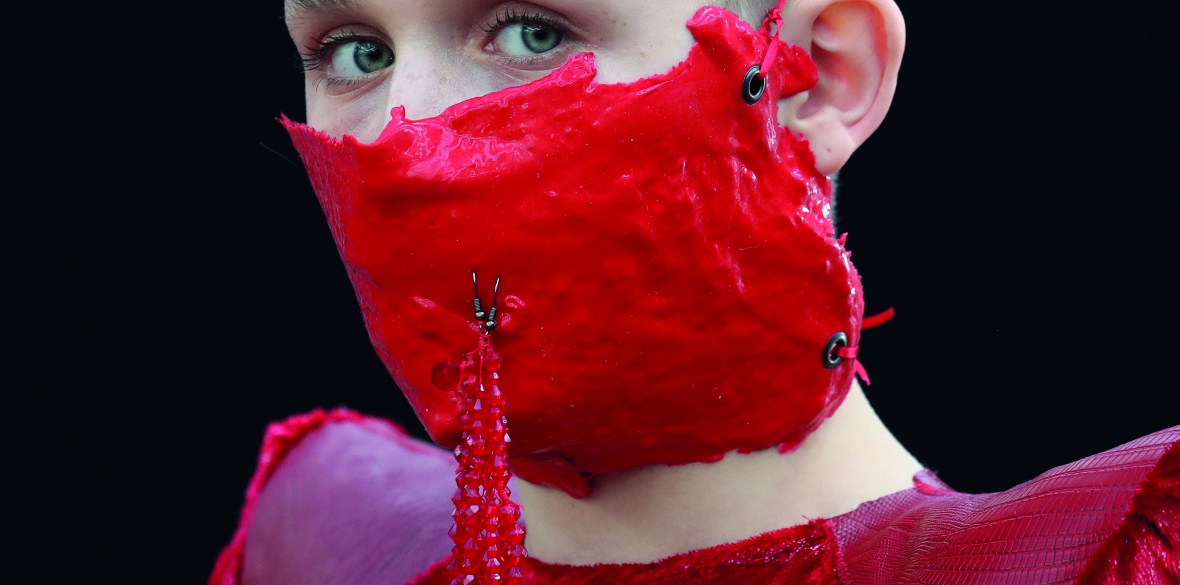This is the last article you can read this month
You can read more article this month
You can read more articles this month
Sorry your limit is up for this month
Reset on:
Please help support the Morning Star by subscribing here
IN the summer of 2019, we spent £2.7 billion on single-use clothes. Some 50 million outfits were purchased for festivals, day-trips and holidays, only to be discarded after a day or two of wear.
It may seem shocking, but this statistic is little more than a drop in the ocean. Britain’s fast-fashion habit is one of the most significant in the world, with one in four stating that they would be “embarrassed” to wear an outfit more than once.
Simply put, the term “fast fashion” refers to garments that are mass-produced quickly (often in large textile factories overseas) then sold for a short period of time, before being replaced by brand-new lines. Such products are the bread and butter of companies like ASOS, who have recently come under fire for their lack of warehouse restrictions during the Covid-19 epidemic.
Whilst Britain still possesses the same craving for fresh outfits — or “newness” as it is referred to in the industry — our inability to browse physical shops during lockdown has caused some fashion fanatics to re-evaluate their shopping habits.
At the risk of seeing their favourite clothing brands fail, many are making the conscious decision to “shop local,” supporting independent sellers from the comfort of their sitting rooms.
Many of these businesses sell second-hand, deadstock or handmade clothing, rendering them both greener and more ethical than their fast-fashion counterparts.
Caitlin is the co-founder of The Octopus Garden, a small vintage boutique based in Liverpool. Before the crisis, Caitlin and her partner Mark would sell their colourful wares online and at local vintage fairs.
With these events temporarily banned, they were surprised to find that their online sales increased drastically once lockdown was imposed.
“I think our customers are generally super-busy people, and this has given them some time to focus on themselves,” says Caitlin.
“I was worried that we would get loads of complaints, as we are only going to the post office once a week for our own safety. But everyone has been so patient and kind.”
Splashing out on vintage clothes may be a way to alleviate the lockdown boredom — but for Caitlin and her customers, it’s more of a comfort.
“It’s never really necessary to buy more clothes — we do it to make us feel good and enhance our identity, and I think that’s more important now than ever.
“I just hope people are still being mindful rather than buying just because they’re bored.”
As some are making the decision to ditch the label and shop independent, others are opting not to shop at all. Across social media, the wartime sentiment of ‘make do and mend’ seems to be enjoying something of a revival.
Knitting and crochet are more popular than ever, whilst a quick search of the hashtag #lovedclotheslast on Instagram produces a sea of users proudly modelling darned socks and patched denim.
This doesn’t necessarily mean that our love affair with fast fashion is over, however. Ayesha Barenblat, founder of ethical fashion charity Remake, believes that there is still some way to go.
She warns that if shoppers and businesses wish to protect garment workers and the environment, they must continue to scale back after the crisis has ended.
“I have witnessed first-hand the damage cheap and disposable clothes do, particularly to women of colour around the world,” she explains.
“These were not victims as the media paints them. They are incredible, resilient women, often supporting upwards of five family members, leaving the safety of their villages to enter the big bad world of factory city life.”
“[But] we can’t keep consuming the way we have been.
“It may be too early to comment on the fate of the fashion industry, and one can only hope that it [starts to] operate on a much slower pace, where we’re not overproducing or wasting as much as before the crisis.
“On a humanitarian level, I hope that the industry will begin to acknowledge that who makes our clothes matters, and that they should treat them better. After all, many fashion brands wouldn’t be able to function without these makers.
“They’re the heartbeat of the industry.”












